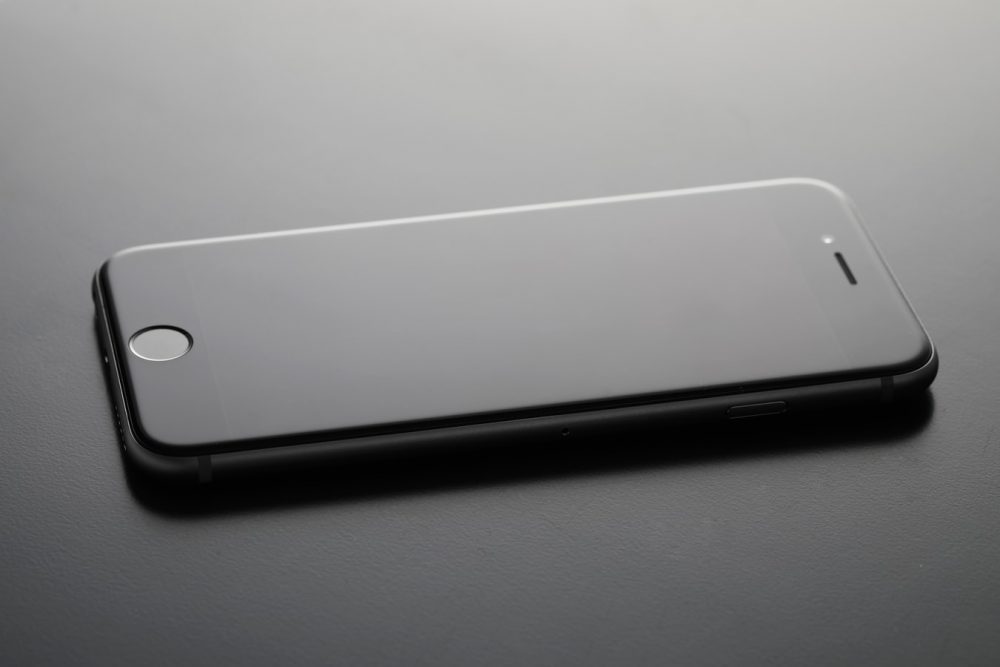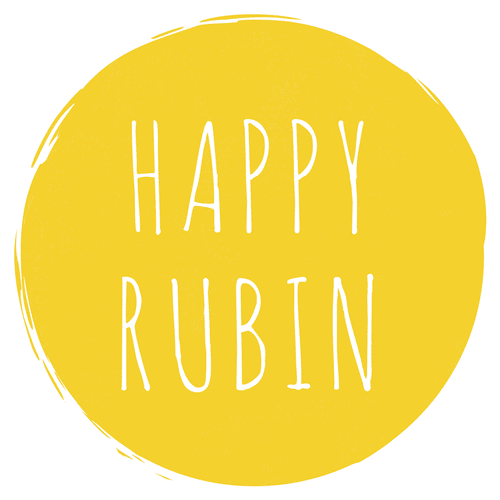![How To Deal With Sensory Overload [9 Tips For Overstimulation]](https://happyrubin.com/wp-content/uploads/2019/12/ik-ben-overprikkeld-150x150.jpg)
Getting & keeping more focus: this is how [13 important tips]
![Getting & keeping more focus: this is how [13 important tips]](https://happyrubin.com/wp-content/uploads/2018/05/focus-leren.jpg)
How do you get more focus, for example on your work, study or day to day life? In this article you will get tips on how to get and keep more focus. Read more…
Contents of this page:
What is focus?
What is actually meant by focus? Good news: focus is very simple. There are two popular definitions of focus.
- Focus means that you will do less (different things) in your life. You focus on one or more projects or goals.
- Focus also means that on a smaller level – when doing a single task – you are not distracted, for example by colleagues, telephones or social media.
So focus means choosing. What am I doing and what am I not doing? What am I going to choose? In a way, this has a lot to do with effectiveness: doing the right things and saying no to things that don’t get you to your goal.
Don’t go for more speed in the things you do, but do the right things.
How do you get more focus? The most important tips
Let’s see how to get more focus…
Tip 1 – Choose one or a few goals, never more than 4

Have one big goal in your life that you can work on every day. In this way you actually build something up. You can also have up to 4 major life area goals. For example, a goal for your life areas ‘family and relationship’, ‘career’, ‘health’ and ‘creativity (hobby)’.
There’s a ball on a soccer field. Are you able to shoot the ball into both goals of the field with one kick?
– Michael Pilarczyk
What so often goes wrong with ambitious people is that they want too much … The reason so few people are successful is because so few people choose one goal and go for it every day.
Don’t keep 10 balls in the air. Don’t get pulled in 10 directions. Don’t be overwhelmed – be focused.
Most people want that much, so they do something different every day of the week. If they had worked on one and the same goal every day of the week, they would have been successful 7 times faster. This is the difference between the footballer who becomes a millionaire because he can get a professional career and someone without focus.
Focus and get good at one thing. Some seem good at a lot of things, but they have also built up those skills one by one.
Tip 2 – Choose one action that you will do every day (‘The One Thing’)
How had it ever been possible to build the Great Wall of China? Because a number of people chose to do the same thing over and over again every day: placing bricks. Every day!
If an empire consists of 100,000 building blocks, make sure you structurally lay the correct building blocks until you have your own empire. We’re too rushed and looking for short-term results and distractions, but we’re not building anything.
– Eelco de Boer
What is your Great Wall of China? What can you do every day so that you can build your own Great Wall of China within one to two years? In other words: what is your ‘one thing’?
Imagine what would happen if you just had ‘laser focus’ for one thing? What if you put on blinders that stop distracting you, eliminate all noise, choose one thing, pull the plug from the rest, and actually choose one platform to build on? And also with a long-term mindset so that you will only do that for a whole year? That changes your life!
A very big problem with unsuccessful people is that they have 10 things … But not you. Choose 1 discipline and do it every day. Then you will be successful in a year. But too many entrepreneurs want to do social media, create podcasts, vlog and create advertisements and SEO …
I get it, you want to build different income streams or use different marketing channels. But why do you want that if you don’t have one full-fledged one yet? Just start with one.
Choose your ‘one thing’ and do it every day.
Multitasking is the great illusion. In today’s society there is as much distraction as possible … Keep doing one thing for a year and imagine the great things you can achieve then.
Steve Jobs was just as proud of the projects he didn’t start as the ones he started.
In short: Channel and allocate all your discipline to make one thing a habit. And then one other thing. If you want it all, you won’t get anything. Pick that one thing you want and enjoy.
Tip 3 – Success is not a sprint, but a marathon: stick to your choice while other people drop out

If you have chosen something that you have researched and are sure works, keep doing it every day until you become successful with it. The reason so few people reach the top is that most people give up or have found a new flower somewhere else that they find interesting.
Many of us are good starters but bad finishers. They lack persistence and drop out at the threat of the first setback.
Leave them good. Not everyone can be successful. You just keep laying out some new bricks every day and at the end of the year your empire is just there.
Don’t let anything or anyone distract you.
Success is not a sprint, but a marathon : you only do one thing for a very long time. It has nothing to do with being smart, but it has everything to do with … keep going on with that one simple thing. So stick to your choice and go for it with full conviction.
Stay in the saddle.
Give everything and get everything out. Make sure you have the longest breath and are the only one standing in the marathon, while the others around you drop out one by one …
A quitter never wins and a winner never gives up.
– Napoleon HillYou should always make sure that you score a goal more than the opponent.
– Johan Cruijff on the principle ‘who lasts the longest …’
Tip 4 – Feel free to use tools to let your brain focus
It is not ‘bad’ or ‘weak’ if you have to use tools to focus more. Feel free to use apps like ‘Freedom’, which will block all distracting sites, or throw certain distracting apps off your phone. You cannot do everything on willpower alone, because your willpower must also be given time to recharge.
Make sure you do n’t have access to distractions such as Facebook, Youtube and TV during your working hours . Or that you cannot be called or texted. It’s not even a bad idea to unplug your TV, remove all apps from your smartphone, or grab a hammer and smash your Xbox. You now have clean working time and guess what happens in it: ‘Shit gets done!’
- Log out of all social media
- Turn off all notifications, sounds and vibrations from your phone and your desktop, except the calling app for urgent calls.
- Turn on a website blocker, such as the Freedom app.
- Turn off the internet function on your phone by default.
- An email app is not necessary on your phone. We didn’t do that for the smartphones either.
- Put your mobile away. Preferably in a different room.
- Leave a suitable voicemail.
- Put on classical music. Brain animations have proven the effect of this on our focus.
Richard Branson’s phone is never near him. We spend about 5 hours a day on our smartphone and / or social media and / or TV. That’s 76 full days per year. If it’s up to me, that’s just wasting your life.
Sochicken also gives valuable tips on this.
Tip 5 – Keep your phone away

Do you really want more focus? We are going to do something radically different: turn off all notifications now. Computer, laptop, smartphone, tablet, smartwatch … Make sure you no longer experience sound, vibrations or blinking – with the exception of private text messages, phone calls and private Whatsapps.
It is a great illusion that we need them. We haven’t had a worse life before the notification era. A less distracted life.
Tech companies know that your attention is worth money. The more often and longer you use their apps, the more (advertising) income they receive. But this is your life what it’s about. You use the devices, not the other way around.
Be on the internet as little as possible. It generally only costs you time and energy. Connect by disconnecting. The most important things to you probably don’t happen on the internet.
– Eelco de Boer
If necessary, turn off that entire e-mail app from your phone, or at least turn off all notifications. You only have to check your mail a few times a week. From your computer.
Well, you do apply these tips. What do you do from now on if your friend goes to the toilet and you stay alone in the restaurant? Your hand will probably still automatically go to your phone, only this time you notice that the tantalizing apps have disappeared and you only have a functional device in your hands. You will be reminded to live with more attention, put your phone away again, notice your breathing, relax and enjoy the mindful moment.
Really important people are not constantly available. Notifications are for people who live in shortage and are not actually popular. If you were really popular, you would turn off all notifications or you would go crazy.
Tip 6 – Take enough breaks!
Your hard-working mind, discipline and willpower sometimes really need some breathing space to be able to recharge. So take breaks. Small breaks, like going outside for a while, and big breaks in your life, like a vacation!
Tip 7 – Write down your goal as well: this programs your subconscious to focus

If you set goals , for example for the coming week, you make it easier to maintain your focus. If you haven’t set a concrete goal for yourself, you can work on anything that seems useful just to keep yourself busy.
When you work with a goal in mind. you become more critical of the things you spend time on. You then select only those things that help you achieve your goal and you automatically delegate or eliminate the rest.
Write down your goals and see how you automatically make better choices in the tasks you take on. Maybe you can achieve one of your goals today. That would be a great start to the week!
Tip 8 – Choose one target group (for the entrepreneurs among us)
A very big problem that I encounter is that entrepreneurs want so much… They want to help everyone because they do business based on a scarcity belief and think that in this way they can get more customers. They therefore decide to want to help several target groups, and that makes it difficult for themselves.
If I have 10,000 euros to spend, and I am dealing with stress, then I will confidently spend my 10,000 euros on a stress coach. This is a coach who indicates in his marketing communication that he only helps people who are struggling with stress problems. I would not entrust my 10,000 euros to an ‘everything coach’.
In fact, I would recommend the stress coach much more simply to those few friends of mine who are dealing with stress. All my friends do have a problem, so that on paper I could refer many more friends to the ‘everything coach’, but in practice I do not refer anyone to the everything coach and those few friends who have to deal with stress. on to the stress coach.
Tip 9 – Literally experience the power of focus: do this experiment

- Place your outstretched arm with your palms up on one of someone else’s shoulders while standing straight in front of the other.
- The other may try to get your arm down. You resist this based on muscle strength .
- Have the other person do this again, but this time resist this while visualizing a steel bar running through your arm and even attached to the walls.
You have just used your focus to grow stronger.
Tip 10 – Say no to anything(!) that does not contribute to your immediate goals
Have high standards of yourself that will lead you to your goals and say no to anything that doesn’t fit in with those standards. Remove all distractions and nonsense from your life.
Always say no by default and don’t work hard to make other people’s dreams come true.
In fact, you shouldn’t even have to think about it in order to be tempted, and you don’t even argue with yourself about it.
I don’t negotiate with myself. I’m just doing what’s right for me. I have high standards and I’m not going to waste my time arguing with my ego.
– Tony Robbins
Be tough. Work hard. Don’t fool around and bullshit with others. Make your time yield 1,000 times as much. To do! without action no result.
You won’t miss anything if you stop watching ads. It doesn’t make your life any worse. It even makes it better and less materialistic.
Tip 11 – Apply Stephen Covey’s classic tip: important > urgent
In seven habits of highly effective people is the classic tip is now thankful to HBO and wo taught: Do not do the things that are urgent. Do the things that matter. Organize your (work) life in such a way that you are faced with as few urgent things as possible, because those urgent things interrupt the focus of the important things.
What are examples of important things that are not urgent?
- On a personal level, that is quality time with your family: it is almost never urgent but very important.
- In the field of work, that may well be placing products in your webshop. If you are constantly interrupted by urgent situations in which your help is requested, you cannot focus on that important activity of your webshop.
At the bottom of this article about the logical levels you will find a nice exercise about the power of what is really important. Fill in your logical levels for yourself, write them on paper, place them on the ground, stand on each level and walk towards your mission while always connecting your feelings with each level. Then you automatically leave the bullshit out.
Tip 12 – Optimize your sleep
Sleep. This is the most productive tool out there. Those who sleep optimally automatically have much less trouble keeping focus.
If you don’t sleep, eat, and rest well , you are literally only 30% of who you can be. Then your brain is not connected to your creativity, intelligence and focus.
Sleep at night and live during the day. Follow the natural rhythm. The more dark hours, the more dark energy. The more light hours, the more light energy.
– Eelco de Boer
Tip 13 – Tackle procrastination
Read more about tackling procrastination here. Through that article you will become more aware of the power of ‘delayed gratification’ compared to ‘instant gratification’.
Tip 14 – Measuring is knowing: how much focus do you need?

Keep a record of how you have arranged your time in a document for a week. Keep a record of what you have done.
At the end of the week you pick up colors.
- Everything that was unnecessary and a waste of your time, you color red.
- Anything that was right to do for your goal, but required some discipline because it wasn’t that fun, color you purple.
- Everything that was right for your purpose and fun, you color green. These things were positive for your quality of life.
Now you know your current situation with regard to focus, so now you know how much focus can be added.
Choose to turn on your focus!
If you apply the tips from this article and if you understand the message of the book below, you will see how to turn your focus on or off. And once you turn it on, you keep going … until you reach the top. That is inevitable.
Read more about effectiveness and a lot of success in developing more focus!
Want to read more? Read this article with tips about effectiveness: don’t go for more speed in the things you do, but do the right things.
I hate someone who moves but doesn’t know where to go.
– Johan CruijffMost of what we do is simply occupational therapy. Even if we don’t think so.
– Eelco de Boer
I am sure that you will succeed in bringing more focus into your life, so that you are heading straight for your best goals.

![5 Best Self Care Tips For College Students [#1 Advice]](https://happyrubin.com/wp-content/uploads/2021/09/the-best-self-care-tips-for-college-students-440x264.jpg)
![How To Stick To New Year’s Resolutions: 9 Tips [Smart & Sure Ways]](https://happyrubin.com/wp-content/uploads/2019/12/tips-voor-goede-voornemens-440x264.jpg)
![How To Stop Being So Hard On Yourself [9 Great Tips]](https://happyrubin.com/wp-content/uploads/2019/12/we-moeten-zoveel-van-onszelf-en-anderen-150x150.jpg)

![19 Best Ice Breaker & Get-To-Know-Eachother Games [Fun & Simple]](https://happyrubin.com/wp-content/uploads/2018/02/leukste-ijsbrekers.jpeg)
![Becoming More Social: 41 Tips [Improving Social Skills] [List]](https://happyrubin.com/wp-content/uploads/2018/06/sociale-vaardigheden1.jpeg)
![How to start a conversation with anyone: 15 tips [Making contact]](https://happyrubin.com/wp-content/uploads/2017/08/gesprekstechnieken1.jpeg)
![372 Friend Tag Q&A Questions [Best Friend Quiz]](https://happyrubin.com/wp-content/uploads/2019/05/best-friend-tag-vragen-voorbeelden.jpg)



![Clingy & controlling behavior of partner/date [Extreme examples]](https://happyrubin.com/wp-content/uploads/2020/06/claimerig-gedrag-van-partner-eigenschappen-en-voorbeelden-150x150.jpg)

![How to recognize if a man is in love [Signals & his body language]](https://happyrubin.com/wp-content/uploads/2020/05/verliefd-gedrag-van-mannen-herkennen-150x150.jpg)


![Free will and religion / theology [Verses & Quotes on free will]](https://happyrubin.com/wp-content/uploads/2020/10/religion-on-free-will-quotes-1050x640-1-150x150.jpg)

![Dealing With Setbacks & Hardship [Lessons & Examples]](https://happyrubin.com/wp-content/uploads/2018/11/omgaan-met-tegenslag-tips-hoe-dan.jpeg)
![NLP Agreement Frame: Use these exact sentences [Examples]](https://happyrubin.com/wp-content/uploads/2020/10/agreement-frame-nlp-1125x640-1-440x264.jpeg)
![122 Best Comebacks In Any Situation [Best Examples]](https://happyrubin.com/wp-content/uploads/2020/06/beste-comebacks-technieken-tips-440x264.jpg)
![Using Hypnosis to Stop Smoking [HowTo]](https://happyrubin.com/wp-content/uploads/2020/05/stoppen-met-roken-door-hypnose-150x150.jpg)
![Presuppositions language pattern: meaning & examples [NLP]](https://happyrubin.com/wp-content/uploads/2020/04/wat-zijn-vooronderstellingen-150x150.jpg)
![Peripheral Vision: Meaning & Exercise [Essential Skill]](https://happyrubin.com/wp-content/uploads/2020/04/perifeer-zicht-trainen-tips-150x150.jpg)

![How To Start A Coaching Business [21 Smart Tips]](https://happyrubin.com/wp-content/uploads/2018/11/coachingpraktijk-starten-tips.jpeg)
![How to make dreams come true? [33 tips to realize dreams 100%]](https://happyrubin.com/wp-content/uploads/2018/05/dromen-mijlpalen.jpeg)
![How To Become Rich? 27 Millionaire Tips [Guaranteed To Work]](https://happyrubin.com/wp-content/uploads/2018/01/hoe-kan-ik-rijk-worden.jpeg)
![77 Best Online Marketing Tools [Recommendations] [Also Free]](https://happyrubin.com/wp-content/uploads/2018/08/beste-onlne-marketing-tools-tips.jpeg)
![Complete List Of Virtues & Qualities [Including Explanation]](https://happyrubin.com/wp-content/uploads/2018/12/kernkwaliteiten-uitleg.jpeg)
![Being Attentive: How Do You Do That? [Meaning & 9 Tips]](https://happyrubin.com/wp-content/uploads/2019/05/attent-zijn.jpg)
![Being Conscientious: Meaning Of This Virtue [Explained]](https://happyrubin.com/wp-content/uploads/2018/07/Consciëntieus-persoon.jpg)


![Best Books About Burn-Out [Top 10] [Update 2025]](https://happyrubin.com/wp-content/uploads/2020/06/beste-boeken-over-burnout-lijst-440x264.jpg)
![Best Self-love Books [Top 10] [Update 2025]](https://happyrubin.com/wp-content/uploads/2020/04/beste-boeken-over-zelfliefde-aanraders-440x264.jpg)
![Life changing books: 10 books that change your life [2025 Update]](https://happyrubin.com/wp-content/uploads/2020/03/levensveranderende-boeken-tips-150x150.jpg)
![Top 10 Best Books: Recommendations Per Genre [2025 Update]](https://happyrubin.com/wp-content/uploads/2019/12/best-books-per-genre-150x150.png)
![Best Books On procrastination: Must Reads [List] [2025 Update]](https://happyrubin.com/wp-content/uploads/2019/11/beste-boeken-over-uitstelgedrag-tips-150x150.jpg)
![Joe Dispenza: Events To Attend [2025 & 2026] [All Info]](https://happyrubin.com/wp-content/uploads/2020/02/joe-dispenxa-events-440x264.png)
![Best Online Study Options [Online Education Top List]](https://happyrubin.com/wp-content/uploads/2019/03/best-home-study-options-440x264.png)
![Teachable Review & Experiences 2025 [Bad Online Training Tool?]](https://happyrubin.com/wp-content/uploads/2020/02/Teachable-review-ervaringen-150x150.png)
![Audible Review, Experiences & Special Discount [Scam?]](https://happyrubin.com/wp-content/uploads/2020/01/audible-review-ervaringen-150x150.png)
![Guest Posts Wanted [Free & Always Directly Accepted]](https://happyrubin.com/wp-content/uploads/2019/05/gastbloggen-regels.jpg)
